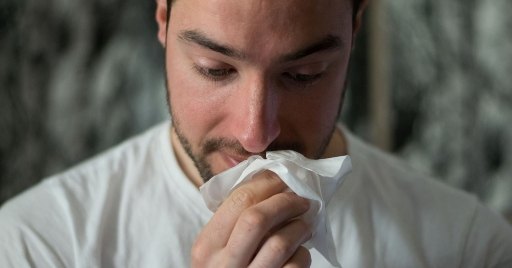
The flu is an infectious illness that is caused by the influenza virus. It can have severe symptoms including head and body aches, fever, a sore throat, and breathing difficulties. The flu is most prevalent during winter since so many people can fall sick at once. It's considered one of the most common contagious diseases. Continue reading to learn more about the symptoms of the cold vs the flu and how you can get treatment at our pharmacy in Luton.
What causes the flu?
The influenza virus mainly causes the flu. The majority of flu cases are spread by tiny airborne droplets released when an infected person coughs or sneezes. If you touch something that has the flu virus and afterwards touch your mouth, eyes or nose, you could also get infected.
People frequently confuse the flu and cold. Although they are distinct, you might experience some of the same symptoms. Many people get colds throughout the year. On the other hand, you can generally get the flu about once in some years.
Symptoms of cold vs the flu
The following are the most common flu symptoms:
- A high temperature of 38°C or more.
- Tiredness and weakness.
- A dry, chesty cough.
- General aches and pains.
- A headache.
Common symptoms of a cold include:
- Runny or stuffy nose.
- Congestion.
- Sore throat.
- Low-grade fever.
- Cough.
- A mild headache.
- Slight body aches.
- Sneezing.
- Generally feeling sick.
The flu can also cause cold-like symptoms such as a runny or congested nose, sneezing and a sore throat, though these often subside sooner than your other symptoms.

When should you see your pharmacist or GP?
You should consider visiting our pharmacy or your GP if:
- You're aged 65 and above.
- You are pregnant.
- You have a chronic disease, such as kidney disease, diabetes, a heart condition, lung disease or a neurological disorder.
- Your immune system is weak, maybe because of chemotherapy or HIV infection.
- You get breathing difficulties, chest pain, or you start coughing up blood.
- After a week, your symptoms are not improving and may even be getting worse.
In some cases, you may need medication to treat or prevent flu-related problems. Your doctor could advise taking antiviral medicine to decrease your symptoms and expedite your recovery.
How can you distinguish between the symptoms of a cold and the flu?
A runny nose and coughing are two symptoms shared by both the flu and the common cold. But whereas flu symptoms can be severe and have dangerous complications, cold symptoms are typically minor. Colds and the flu are both caused by different viruses. When you have the flu, you can tell. You can anticipate experiencing a fever, a sore throat, chills, a cough, a runny nose, and achy joints and muscles when you have the flu. On the other hand, a sore throat and a runny nose are common symptoms of colds. Colds are much more common than the flu.
How can I treat the flu?
Most people who rest at home recovering from the flu successfully without the need for medication. Your body should make a full recovery from the flu in a few days. To aid with your recovery, get enough sleep and drink plenty of water to stay hydrated. You can also treat flu symptoms with the following medications if your pharmacist says it's safe to do so:
- Paracetamol, to reduce your fever.
- Ibuprofen to help relieve aching muscles.
- A decongestant for a blocked nose.
- A cough syrup to help with your cough.

How can I prevent myself from getting symptoms of cold vs flu?
Getting vaccinated will protect you from getting the flu. Scientists create a new vaccine every year based on information about the most anticipated influenza viruses. The vaccination often contains influenza A (H1N1), influenza A (H3N2), as well as one or more influenza B viruses.
Another effective flu-prevention practice is frequent handwashing. This prevents you from contracting the virus if you touch your mouth or nose after coming into contact with a contaminated surface. Avoid touching your face, and wash your hands often during the day with soap and water. You can also use an alcohol-based hand sanitiser if you can't access soap or water.
Adopting healthy habits like getting adequate sleep and exercising, managing your stress, eating a balanced diet, and drinking lots of water are also good ideas.
Where can I treat the symptoms of a cold or the flu in Luton?
Ring us today for more information or to get treated for minor ailments like the flu and cold.
This blog post was written on behalf of Biscot Pharmacy by Pharmacy Mentor.
Luton
Bedfordshire
LU3 1AW